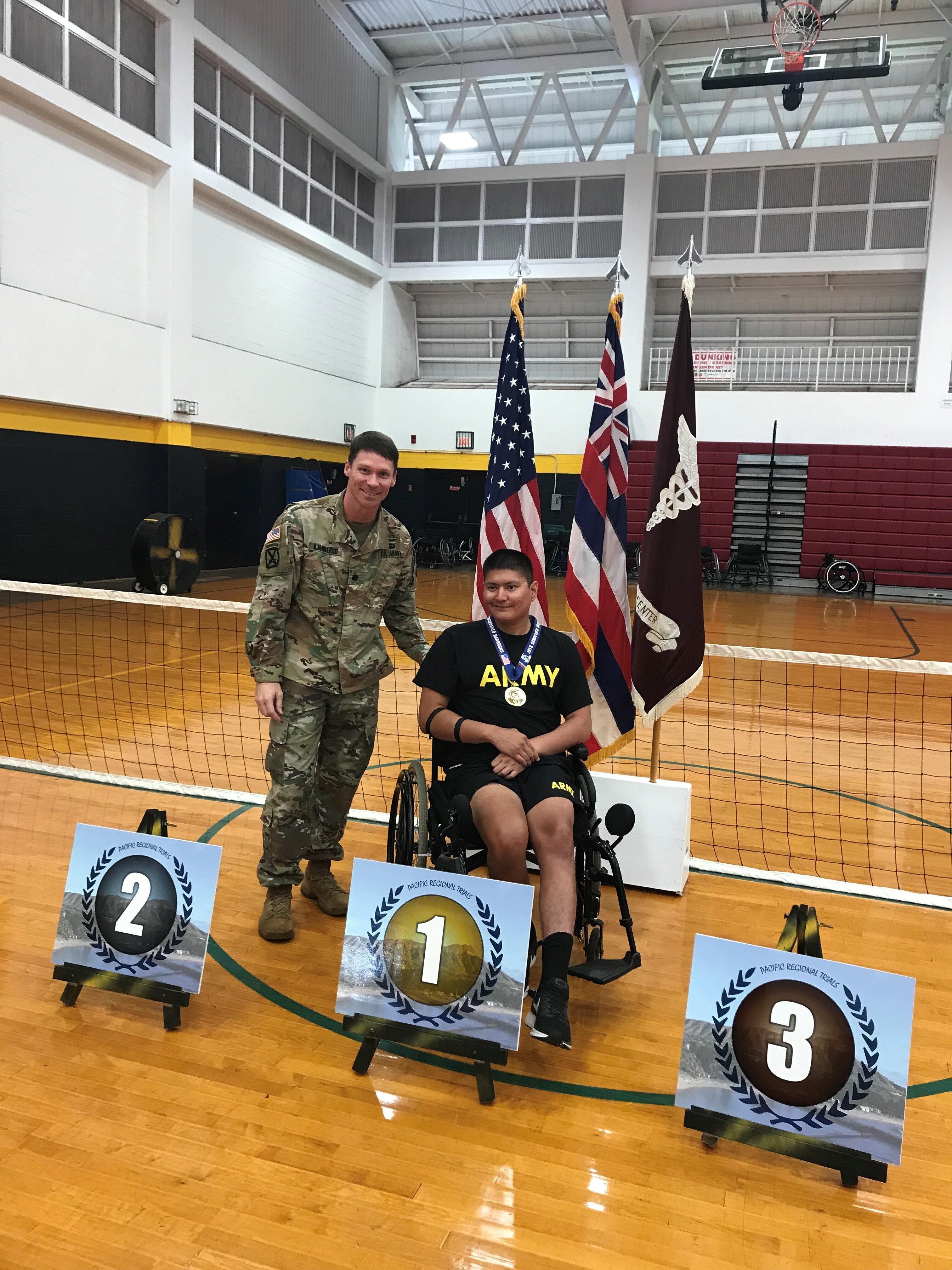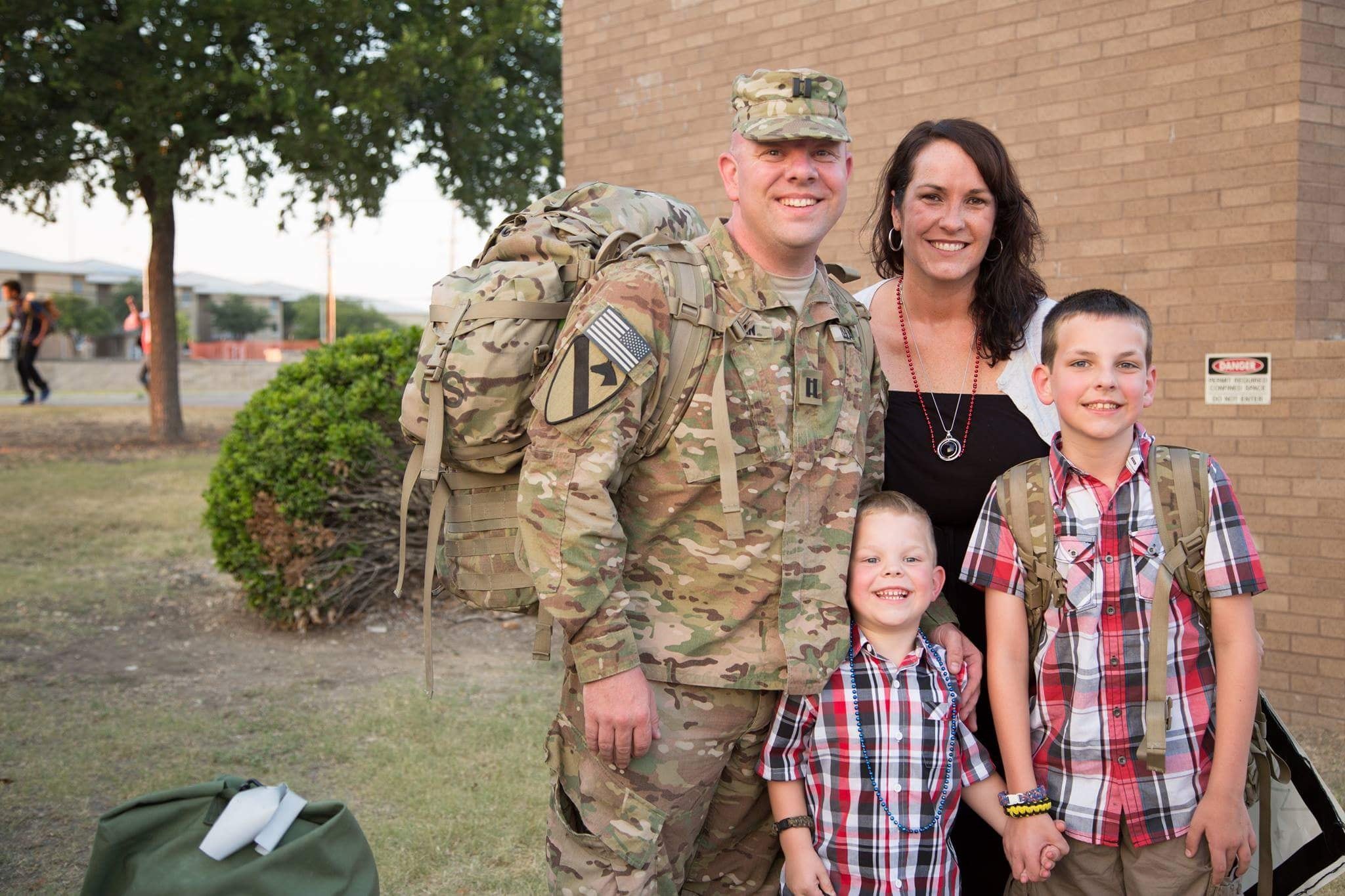It was St. Patrick’s Day 2017, and Spc. Kevin Holyan was celebrating a friend’s promotion at a home near Fort Campbell, Kentucky.
Drinks were had, and at one point, Holyan took out his Glock 23 pistol ― which he kept stored at that friend’s house, because he wasn’t allowed to keep it in the barracks ― to show to other members of his company within 3rd Brigade Combat Team, 101st Airborne Division, proud of the new hand grip he’d just installed.
Some soldiers made a joke, and in response, Holyan joked back, holding the handgun up to his head and suggesting he should just kill himself, according to a line-of-duty investigation provided to Army Times by his attorney.
Then he pulled the trigger. According to Holyan, he did not think the weapon was loaded, and a fellow soldier’s statement backs up the assertion that, at least at the beginning of the get-together, the pistol wasn’t loaded. He also wasn’t drunk, according to the statement.

The initial LOD investigation found that because the shooting was an accident ― Holyan believed the weapon wasn’t loaded and he had no intention to hurt himself, according to statements ― he was injured in the line of duty.
However, Maj. Gen. Andrew Poppas, commander of the 101st, chose to disregard the investigating officer’s findings, according to the report, designating the shooting not in the line of duty.
“It was just a reckless act,” Sean Timmons, a former Army judge advocate and member of Holyan’s legal team, told Army Times in a Jan. 23 phone interview. “But recklessness alone is not automatically outside the line of duty.”
Anticipating a fight, Holyan’s mother hired legal representation.
“Had he died, it would have automatically been line-of-duty,” Timmons said. “If you’re alive, we’re going to punish you, even though you’re permanently disabled."
Today, Holyan is assigned to the Warrior Transition Battalion at Joint Base San Antonio, Texas, going through the complex Integrated Disability Evaluation System, which will tell him under what terms he will be leaving the Army, and what kind of medical coverage or compensation he’ll be entitled to after his discharge.
What it comes down to, Timmons said, is an “extreme, machismo-type attitude” among leaders of combat units.
“The problem a lot of these commanders have is, they’re not properly advised by their senior legal adviser about the nuances of the law,” he said. “And here, you have a very obvious situation where it looks terrible ― and you’d be inclined, if you’re a disciplinarian commander, to say, ‘Oh, we’re going to set an example.’ But the implementation of the regulation doesn’t allow that mindset anymore.”
Because Holyan is now disabled, in a wheelchair and unable to live independently, the determination could mean minimal veterans benefits.
“Since there are no military regulations, orders, instructions or civil or criminal laws that restricted Spc. Holyan from handling his personal weapon in the presence of alcohol or while drinking responsibly, the substantial evidence only shows that Spc. Holyan violated safety rules and guidelines,” according to the LOD rebuttal.
However, in explaining his decision to overturn the determination, Poppas cited a totally different regulation, not having to do with alcohol consumption.
“Specifically, the evidence demonstrates that Spc. Holyan was willfully negligent in his conduct and handling of the firearm," he wrote in his determination.
Making a misguided mistake is not in and of itself considered misconduct, according to Army regulations. However, the 101st Airborne’s staff judge advocate has published guidelines for LOD investigators, with a section that deals specifically with weapons.
RELATED

“Injury incurred while tampering with, attempting to ignite, or otherwise handling an explosive, firearm, or highly flammable liquid in disregard of its dangerous qualities is not incurred in the line of duty,” according to Rule 6 of the guide.
While there is some debate as to how intoxicated Holyan was, the commander may have come to his conclusion based on this rule alone.
Any soldier who has graduated basic training will have learned never to point a weapon at anyone except in self-defense, to include him or herself, and would have been reprimanded for disobeying that rule.
A spokesman for the 101st Airborne Division, Lt. Col. Martin O’Donnell, declined to comment on Holyan’s case, as the LOD has not been finalized because of the rebuttal process, and the soldier is no longer under that command.
“There’s nothing here malicious. It’s stupid, it’s idiotic, but it’s not what the regulation says,” Timmons said. “We found other stories where a similar situation happened, and the Army reversed course once it got elevated to the press.”
Additionally, Holyan was not punished through an administrative or legal action for the shooting, Timmons said.
“He has to live with the consequences for the rest of his life,” Timmons added. “He’s permanently disabled ― that’s debilitating and humiliating enough.”
Meghann Myers is the Pentagon bureau chief at Military Times. She covers operations, policy, personnel, leadership and other issues affecting service members.




